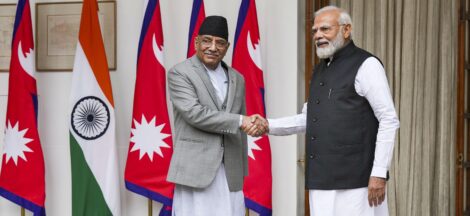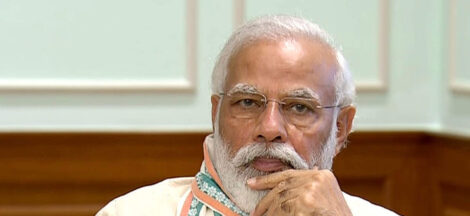By W. T. Whitney
Jr.
Delegates of Cuba’s National Assembly
of People’s Power on December 22, 2018 unanimously approved extensive revisions
proposed for Cuba’s Constitution of 1976. The Assembly authorized a national
referendum on acceptance or not of what is in effect a new constitution. That
vote takes place on February 24, the day in 1895 when Cubans launched their
second War of Independence from Spain.
The constitutional change responds
to new realities and old problems confronting Cuba’s brand of socialism. A new
generation of political leadership has materialized, as has increasing
dependence on foreign investment, new property-ownership patterns, and new
forms of private enterprise. Meanwhile, U.S. hostilities and economic blockade
persist, economic productivity lags, personal income is low, the debt load
increases, and costs for importing goods are high.
The project, envisioned over the
course of several years, began in earnest two months after Miguel Díaz-Canel
became Cuba’s president. On June 2, the National Assembly appointed a 33-person
commission “of deputies and experts” to draft proposed constitutional changes.
The commission, headed by former President Raul Castro, deliberated and on July
22 secured National Assembly approval for its proposed modifications, which are
summarized here. The Assembly authorized a three-month period of national
discussion of the draft Constitution beginning August 15.
By November 15, 133,681 meetings had
taken place throughout the island. The 8.9 million people attending them had
offered 1,706,872 commentaries. These boiled down to 783,174 suggested
modifications, additions, eliminations, and requests for clarification. Cubans
living abroad also participated.
Then the drafting Commission, in
consultation with legal experts and academicians in various disciplines, spent
five days studying these suggestions from the communities, grouping them into
9,595 categories and deciding which ones should be incorporated into the draft
constitution. Top leaders of the Councils of State and of Ministers were
involved.
The next step was deliberation in
the National Assembly. Eventually, 50.1 percent of the citizen recommendations
appeared in the version of the constitution approved on December 22, actually
in 134 of its 229 articles. The revised document contained 760 changes ranging
“from a word or a phrase to incorporation of a paragraph or complete article,”
according to Secretary of the Council of State Homero Acosta, who facilitated
discussion in the Assembly. Most of the rejected suggestions, he said, had
content inappropriate for a constitution.
Many of the suggested changes were
small. For example, “Cuban citizens” became “the Cuban people.” The term
“proletarian internationalism” was added. “Capitalism” was newly described “as
a regime sustained by the exploitation of man by man.” The words “and of social
justice” were added to “Cuba is a socialist state of law.” “Marxism and
Leninism” replaced “Marxism-Leninism,” which is a “formulation with Stalinist
coloring,” according to Acosta.
Some draft proposals were of more
interest than others. For example, the one stipulating that marriage involves
two persons and no longer husband and wife didn’t pass muster for 192,408 of
those speaking up in the community meetings. Evangelical Protestants had
agitated for rejecting normalization of gay marriage. Acosta justified a
watered-down version of the reform stating that marriage is a matter of union
between “two spouses,” with gender unspecified. He pointed out that further
liberalization may occur in the context of a new Family Code to be unveiled in
two years.
The provision of the new
constitution limiting Cuban presidents to two consecutive terms was unpopular
with 88,039 commentators. That he or she must be younger than 60 years of age
at the outset of a presidential term worried 24,035 of them. Direct election of
presidents was popular with 16,176 of those who reject selection by the
National Assembly. The original proposals remained, however.
Reacting to the nature of work being
cast as a “basic value” and a “duty,” 51,414 commentators called for work to be
made “obligatory.” Determination of salaries by “quantity, quality, complexity,
and results” didn’t satisfy 12,558 community people who prefer salaries being
tied to prices paid for needed goods. Neither group of dissenters prevailed.
According to Acosta, the word
“political” is new in Article 5 which holds that the Communist Party is “the
leading political force of society and the state.” He stated, however, that
“the Party is not situated above the Constitution. As a political entity, it
must honor and also defend it.”
A new Article 30 establishes the
role of the state in guaranteeing a just redistribution of wealth. Another new
article states in part that, “Workers participate in processes of planning,
regulating, managing, and controlling the economy.” A few people at the
grassroots envisioned a Constitution with no mention of the leading role of the
Communist Party and no reference to a “socialist system” or a “socialist
economy.”
Analyst Ángel Guerra Cabrera, who
writes for Mexico’s La Jornada newspaper, observes that on January 1, “Cuba
celebrates the 60th anniversary of the victory of the revolution right at the
culmination of a process of participatory democracy quite probably unequalled
in the world.”
Indeed, as reported by the Communist
Party’s Granma newspaper, a remarkable discussion occupied the National
Assembly prior to its vote on December 22 approving the draft constitution.
Dozens of Assembly delegates spoke and suggested even more changes. A member of
the drafting commission responded in every instance, accepting or rejecting the
proposal, and giving reasons. The picture was of serious purpose, orderly
discussion, tolerance of contrary views, and underlying unity—in short,
democracy at work.
A government arriving in power
through revolution seeks permanence. A new constitution may be useful in that
regard. It often expresses dominant values of a society and certainly creates
guidelines for governance, hopefully enduring in both cases.
Cuba’s constitutions include one in
1902 following independence from Spain, another in 1940 viewed as progressive,
and one more in 1976, 16 years after the current revolutionary government
gained power.
As befits a socialist society, the
new constitution on the horizon now is about the welfare of all Cubans. It also
looks to preserve the socialist nature of Cuba’s government. Importantly, this
new constitution will symbolize permanence for Cuba’s socialist project which
began 60 years ago.
(IPA Service)
Courtesy: Peoples World
The post New Cuban Constitution Ensures Participative Democracy appeared first on Newspack by India Press Agency.


